#sheriff eviction
Explore tagged Tumblr posts
Text
Eviction for Rent Arrears in Florida | 561.699.0399
Eviction for Rent Arrears in Florida The eviction journey, while a path no landlord wishes to take, becomes necessary when rent remains unpaid. Chapter 83 of the Florida Statutes lays down a procedural roadmap for this, designed to balance the rights of both landlords and tenants. This cursory guide dives into the nuances of initiating an eviction, emphasizing adherence to legal…

View On WordPress
#attorney’s fees#county court eviction#court costs#court filing for eviction#eviction dispute#Eviction for Rent Arrears in Florida#eviction hearing#eviction lawsuit#eviction legal advice#Eviction Notice#eviction summons#eviction timeline#final judgment eviction#florida eviction process#landlord responsibilities#landlord tenant law#Lease Agreement#legal eviction steps#Legal procedures#Legal representation#Non-payment of rent#overdue rent#possession reclaiming#Property law#Rental property management#sheriff eviction#tenant eviction#tenant response#tenant rights#three-day notice Florida
0 notes
Text
watching sunday ep rn.
and it's so annoying to have the people who VOLUNTEERED for the block to criticize Cedric for not putting a big target on the block instead.

#bb26#i tune out when sheriff self evict talks#but both tucker and angela were like hmm i wish he had gone after someone bigger#what incentive does he have to do that#don't get me wrong i ha te these boring noms too#but they are the last ones who get to talk shit about it
14 notes
·
View notes
Text
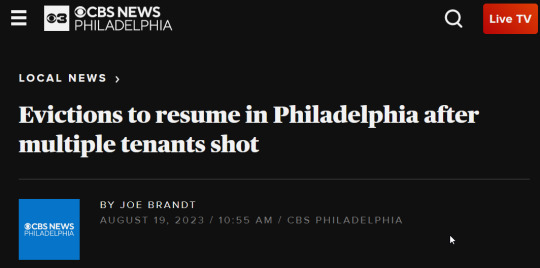
i'm sorry.. what?
PHILADELPHIA (CBS) -- Philadelphia Municipal Court is resuming evictions as early as Monday, saying landlord tenant officers have now received training on use of force and de-escalation tactics.
landlord.. tenant.. officers?
"Though the sheriff has the power to serve evictions, the task is usually handled by a private force hired by a court-appointed attorney known as the landlord-tenant officer. These private security contractors — who are often armed — have long been a part of the local eviction system."
so landlords have their own private military? this is class warfare
This follows the court suspending all evictions in July after multiple tenants were shot during evictions over the past several months. In one incident in March, a plainclothes landlord tenant officer shot a woman in the head. In another incident in July, police said a woman was shot in the leg. A spokesperson for the court's Landlord and Tenant Office said evictions will now be conducted in teams of two officers who have all received Pennsylvania Constable training.
this is LITERALLY class warfare
The LTO is funded by service fees from landlords and not taxpayer money. Fees to landlords will increase from $145 to $350 to cover the additional staff, training and insurance costs.
and who the fuck do you think is going to end up ultimately paying those fees in the end? where do you think the landlords are going to get the money? you're just giving them an excuse to raise the rent. oh my god this country is a complete and total failed state.
[cbs]
9K notes
·
View notes
Text
Stop the Eviction!
As most of my followers know, my spouse and I (both disabled and living on a single income) have been fighting to stay in our rental home for months now. This started when our landlord decided to start using a local property management company who decided all back rent needed to be paid or we needed to leave. (Honestly, that part is fair as we owed quite a bit.)
This was, quite unfortunately, a few days after I had had a harrowing accident where I fell very hard and received a concussion, which has only added to our stress as it affected both my health physically and mentally as well as costing my short term memory. (I still cannot remember that night or the next week clearly) I have been struggling with managing my symptoms since.
We have striven to get the company their money at a detriment to our utilities and food bills, but we have been fortunate to receive so much help and support.
For the past several months, it's only gotten worse. The company had a court date we were never notified of (which had us judged as no shows so the company was free to break any repayment contract we had signed), added fees such as a pet deposit we paid when we moved into this house almost six years ago, legal fees for said court date, late fees that were never discussed before, extra fees from who knows where and basically have just been monthly harassing us with ten day eviction notices and even threatened us with the sheriff. Also they're claiming we didn't pay them on a certain month. Every time we thought we were on track, they'd pull something else. They've been rude and quite frankly, I would love to move to a different house if that was at all an option, but it's honestly not.
I had set up a gofundme, but since we've been paying everything we've got to back rent, our phones have been shut off for the time being and I am completely unable to log in to update or anything.
The management's company's ledger for us currently sits at $2,275.00. They are asking for at least $1000 before the end of the month, after we've already paid our monthly rent plus some. We have people that we can talk to on Monday, but unfortunately, nothing else until then.

I am also very, very behind on commissions. There are several that are almost finished, but my fibromyalgia has been badly flaring, making it extremely difficult to put out the results I want. That being said, if you do not mind waiting a few months, I will happily add you to my art commission list for whatever you'd like to donate to help us.
Tl;dR: Two disabled people with pets are trying not to be evicted. Will draw for donations.
Thank you so much for current and past support. I promise I am trying to get back to everyone who has helped, it is just taking time, more time than I expected. I am sorry and again, thank you.
0/$2275
C*shapp, P*ypal, V*nmo: duessa
111 notes
·
View notes
Text
oh lord here comes another postal post that got the fuck out of hand. Can you tell ive been thinking about him lately
i keep wanting 2 write a post about postal 1 and its reflections of the politics of its authors (esp vince who iirc wrote the journal entries) but i just can't put my finger on the words and in what order. like especially in context of the conversation "is dude a normal guy who went insane because of environmental/life stressors or was he always like this?" (my answer being: Both)
There's like these specific kind of people who are fed up with the world and the suffering in it but from an incredibly self-centered perspective, like you know those people who say Oh im not into politics but i hate my job. and my pay. and my landlord. and the city. the cars. the people. the violence. Completely unaware of the system and rich people holding this miserable world in its place, instead led to believe that the world's suffering is due to the inherent evil/pathetic nature of people and individuals. p1 (and p2 but this post is about p1 and his motivations specifically) is this kind of person to me, he has all his woes he has right to complain about but puts the blame on his fellow man who's just trying to survive, instead of the system responsible for all their collective suffering (which he seems to have faith in btw, like in the second journal he literally tries to seek out the town sheriff for help, and later wants the air force to bomb the town, although i think over time he loses faith in them too) he's just one of many people tricked into fighting amongst other people and believes it to be full of animals who need cleansing
like. i believe this is his naturally self-centered, misanthropic view of the world that COMBINED with moving to a town that (according to his journals anyway, if we are to 100% believe him) has high crime and violence, and being evicted and having cops surround his house, that leads him to snap and go on a killing spree where he believes himself a victim doing good all throughout, something initially started in genuine self defense that snowballs into a belief of cleansing the world of filth which comes from a place of deep-rooted misanthropy, the line between demon and dude blurring... Ya.
idk i think he's complicated. he's neither a completely innocent good man pushed to the limit, but neither is he a totally purely bloodlust driven monster.
18 notes
·
View notes
Text
s5 episode 15 "travelers" thoughts
long day. i want scully and mulder time.
ooh, looks like this episode will be about mr. mulder! mr. william mulder, i should specify; i am not just referring to OUR mulder with that title.
will we also see baby CSM?! will the puzzle pieces fit together, or drift further apart?!
i think mr. mulder is kinda cute. like a clean matty healy.
(WORDS I LIVED TO REGRET TYPING!!!!!)
now, what mischief has he gotten up to today? killing people? i’m not really shocked.
so, it looks like we will not actually get any scully and mulder time, but i’m open to change after the CSM episode. it was really interesting. let’s see what is in store.
‼️HATER ALERT‼️i should not have been open to change. this episode pissed me tf off. what do you mean we are changing mr. mulder’s face and making roy cohn put spiders in your belly? HELLO? can you even hear me? did i really just watch this?
we begin in 1990 in wisconsin. strange place to be. a sheriff is here, coming to get someone who is locked in a house.
“i don’t much enjoy evicting old folks”, says the sheriff. wow. almost a conscience there.
but the guy he is with promises this old person shall change his mind. and from the spooky music that is playing, i am inclined to also think something is about to go down.
edward skur is being evicted, and he is not opening up his door. but something in the house smells very bad. uh oh. this is never a good way to start an episode.
this house is very messy and dark, and mr. skur seems to be watching from a distance. it’s covered in bugs. icky.
the other guy sees something horrible and throws up!! let me guess: a body?
UGH! i wasn’t technically WRONG, but it’s a MUMMY in the bathtub!!! it looks really old!!!! like, ancient kind of old!!
which raises the question: do mummies smell bad? i kind of assumed after a few centuries it just went sort of… neutral
i need to research this later.
anyway, skur tried to grab the sheriff, but he fired his gun. he hit mr. skur, and as he dies on the ground, foaming at the mouth (??), he calls for MULDER????
huh??
idk if either of the mulders can help you with your smuggled mummy... i just really do not know 💔 i fear we may need to call the authorities to get that mummy back to its sarcophagus or perhaps bog home
(i assume it will be some kind of alien, but you have to admit it looks like the result of a tomb robbery)
intro time!!! yeah yeah yeah make some noise!!
and they shortened the intro again...! must be for a good reason?
(NO. NO GOOD REASON)
so it’s still 1990 here. and mulder is going somewhere…. to an apartment. looking for arthur dales.
he introduces himself as a profiler with the behavioral sciences unit (aww! baby mulder! he looks pretty much the same as current mulder, but with longer hair)
oooo, this dales man used to work for the bureau… he opened up a case on edward skur in 1952!!!
arthur claims he doesn’t know what went down
mulder brushes some hair out of his face (aww, the slightly different hair style, they really want us to notice it)
“do you know what an x file is?!” “it’s uh… yeah, it’s an unsolved case” <- ohohoho, do i, the viewer, ever know what an x file is!
arthur clarifies: “no, it’s a case that’s been designated unsolved” <- hmm okay. so they basically didn’t want to bother solving it because it might be incriminating. pretty important distinction if he's telling the truth.
apparently, skur disappeared many years ago after killing a bunch of strangers and removing their organs. most of the report on the matter is censored. but now he was found and shot last week, and a man in his bathroom found with all his soft tissue removed. yuck.
so NOT a stolen mummy nor an alien. for the sake of historic preservation, i am glad skur was not a guy who kept mummies in his bathtub. we need those for research purposes.
ohhh!!! arthur tries to shut him out, but mulder asks how tf skur knew his name!!! an excellent question.
“you ever heard of HUAC, agent mulder, the house un-american activities committee?” <- not sure if i knew before this that HUAC was pronounced “hew-ack”, which is a really terrible way of pronouncing a word, but i guess it makes sense for the time.
arthur says mulder wouldn’t know about HUAC… girl, that man is a walking encyclopedia. don’t doubt him.
“they found practically nothing. you think they would have found nothing… unless nothing… was what they wanted to find?” <- very cryptic. i like the idea that the red scare was a coverup for alien stuff. makes more sense than what actually went down. but on the other hand, it kind of undermines the senseless destruction that came with mccarthyism by giving it an in-universe purpose.
so i changed my mind. maybe i don't like it.
mulder again plays with his hair (lmao) and says that he’s sorry, but doesn’t see the connection. aww, he’s a little baby! he cannot even see a connection! and then arthur slams the door on him. rude af.
mulder is watching news footage from the mccarthy era to research this case. roy cohn is mentioned, and every time i remember that roy cohn was a real person, i have to take a deep breath.
apparently the term “fellow travelers” referred to those sympathetic to the communist cause back then? i genuinely had no idea. damn, my modern history knowledge is lacking! listen, they don't teach you much past WWII in US history 101 and 102
god. roy cohn mentioned, again. he is said to be the man who “brought the rosenbergs to justice”. this makes my skin crawl.
(little did i know what this episode had in store for me...)
mulder has a little card that identifies edward skur as a member of the communist party. now, i understand that was a controversial group to be a part of, but i fail to see how this leads to stealing organs. we’re missing some context.
look at mulder with messy hair and glasses!!! he rewinds the tape and recognizes someone in the background of the hearing!!!
good lord…. he’s attractive.
(perhaps the highlight of this episode was mulder in glasses. it gets me every time)
anyway, it’s his dad he recognizes. which is obviously very shocking.
AWW, he brings mr. dales some coffee the next morning :,) he shall not be deterred!
mr. dales tells him to go ask his father, and mulder says “my father and i don’t really speak” <- damn… are we going to get the story behind that?? i mean, we know a decent part of it. maybe that is enough.
BAHAHA dales slams the door again and i was thinking “buddy, he will subpoena you” and then mulder says just that lmaooo
and this works on him; he opens the door back up and says that edward skur worked for the state department just like mr. mulder. our mulder must have known that, but said nothing!
OHHH he asks if his father was involved, and dales just lets out a big sigh. (shocked mulder voice) how??
and how did he remove the organs but not the skin??
is mulder smoking right now?? i guess hearing your father was involved with a bunch of murders is stressful enough to make a guy open up a pack.
(i literally could not figure it out. it just looked vaguely smoky. i didn't see a cigarette being brought up into his mouth. does anyone know? because if mulder smokes or smoked at some point, i'm going to need to add that to my internal list of facts about his character and then analyze what that says about him. please tell me, and thank you)
dales says he can tell you how the organs were removed, but not why. what do you know?!?!
in regards to the communist allegations- that is what "they" all said "they" were!! this clears up very little
way back in the olden days, dales is arresting mr. skur!! they plant a communist card on him… or else they really did find it as soon as they arrested him, which i find hard to believe. his wife and kids watch this happen :( poor kids
dales is at the bar getting a drink after busting reds all day. someone calls the bar looking for him!! it’s his partner!!! skur was found dead!
this is stressful for dales…. he drinks his bourbon.
he has to go tell mrs. skur that her husband died, and it was his fault for arresting him. drinking and driving is not advisable, but this is not stopping dales. he’s waiting outside the skur’s house trying to find the words when he sees edward skur run by!! this ought to be impossible!! due to the dying!!
chase scene!!! WHAT THE FUCK DOES SKUR HAVE LIZARDS IN HIS MOUTH??? he pins dales down and SOMETHING emerges???
the neighbor hears them scuffling and skur runs away!!!
HUH??? MOUTH LIZARDS?
okay.
dales clocked in the next day after almost getting eaten. his partner has something to tell him. now he has pictures of the dead skur taken BEFORE dales was attacked last night!
dales clarifies he didn’t have *that* much to drink. and his partner says to leave him out of the report, but he already turned it in!
the justice department is calling him!! they need to chat! oooo dales is in trouble...
(these scenes are very bright and foggy to indicate they take place in the past and it’s a little distracting lmao)
HE’S GOING TO SEE ROY COHN?? HE’S A CHARACTER IN THIS SHOW???
woah… he sits next to dales. scarily. and asks if he knows who he is. “then you know how important my work is” yeah. they must expel the communist vermin. sure, sure.
“everything is political, agent dales” <- very ominous.
dales seems to be the only one that can identify the man who attacked him as skur, because his wife and the neighbors sure deny it.
does roy cohn know about the aliens???
he’s just staring at dales. he knows he has to edit skur out of his report, but he’s not sure why. “you’re not supposed to understand; you’re supposed to follow orders” <- damn. very very creepy guy.
(tbh, i don’t really know what real young-ish roy cohn looked like, so i cannot comment on if this guy is the spitting image of him or not. but he is very unsettling)
so, dales changes his report, saying the suspect is unknown. and all the information on skur is blacked out, just as we saw in present mulder’s hand!
but skur was already out doing murders, so dales cannot leave this mystery behind. they go in the murder house where they find a german song playing, and a picture of the house's owner- a doctor- shaking the president’s hand. hmm. who is this german doctor guy?
it smells like hospital in there, his partner reports. not a great smell.
and they find the german guy’s body… it’s really grotesque!!!
the cops arrive at the scene, telling the agents to put up their hands. they have no idea who tf these agents are. then who called them there?!?!
ohhh, dales finds a coaster from the bar that says “come alone”….. secret code....
he’s in this little secluded booth thing at the bar (what? i thought it was a confessional at first? did bars back then have a random little private booth section? what was the purpose of this?)
anyway, this new guy says he was trying to SAVE the dead german doctor, but he was too late, and skur killed him. and dales will be next.
meanwhile, his partner is at home bringing in the groceries, and i can imagine what will happen next….
OHHH HE HAS A CUTE ORANGE KITTY. highlight of the episode.
back in the booth at the bar, mystery guy says that skur and “the others” are patriots who work at the state department. skur, gissing, and oberman. and now the other two are dead by their own hand!! they couldn’t live with what they’d become!!
they (cohn and the government?) had to put out a story to cover up what they did to skur…. what did they do?!
WAIT, THIS GUY IS MR. MULDER? he looks different than the other mulder actor!! did he get a new actor?? did they just change?? am i crazy? is that the same guy? is he lying?
(i was second-guessing myself so much that i went back to rewatch the part of apocrypha that had him in it and i KNEW. i KNEW that was a totally different guy. one that looked like a clean matty healy and who i had grown attached to. this dude is just someone else entirely! is it some sort of plot trick? a recasting? what is afoot?!?!?)
((if this WAS done for plot reasons, you can tell me. because it would make me feel far less annoyed. even if the reason is a later surprise like "gasp! turns out bill and william mulder were DIFFERENT PEOPLE". you don't have to specify anything. you can just say they did it for a reason. but i have a feeling this is not the case)
“mulder” (i am suspicious) claims that he cannot keep this secret any longer, and he risked his family to come here and tell dales.
meanwhile, his partner sits down to watch mccarthy do his thing on the TV, but the cat knocks his beer down
mr. bill mulder says that mr. cohn and mccarthy are involved in this…. skur wants revenge for what they did to him. and skur thinks that dales and his partner are involved!!
dales gets up and asks for the phone, and he’s calling his partner, whose number was “klondike 5 0133”, making me realize i know nothing about how old phone numbers work. but his phone has been unplugged!!!
and skur is going lizard or bug mode or something on the partner!!
WHAT THE HELL?? I REALLY REALLY REALLY DISLIKE HOW THOSE LEGS CAME OUT OF HIS MOUTH AUGHHHH
the next day, the coroner is trying to examine the body. and who rolls in but roy cohn! he says that they can’t take the body to the morgue.
OH SHIT: “what are you talking about, i’m no communist” “you are if i say you are” daaaaamn. that is crazy. backed right into a corner there.
roy cohn, how did you turn that guy into a spider on the inside…
“when your partner dies, a piece of you dies with him” <- okay so mulder and scully, take notes. you can’t die on each other, okay? thank you.
dales needs to avenge his partner’s death!! so dales must find out what happened to the other two men who mr. bill mulder said are now dead, but also had that “thing” done to them.
OH this secretary put the info on one of those guys in an x file!! “why don’t you file them under ‘u’ for unsolved?” “that’s what i did until i ran out of room” <- LMAO queen… THE x file creator!!! everyone say thank you to her
(i feel this is a definite retcon of the x file lore, but whatever. what do i care? they already changed this dude's whole face)
gissing was found dead with his doctor, but the don’t know how the doctor just… collapsed.
gissing had some recent surgery… his body is still in the morgue. dales says CUT HIM OPEN NOW even though the coroner says the family will yell at him he does, in fact, do the cutting open
waugh… something in the esophagus… EAUGH I CANNOT LOOK. IT’S A SPIDER??? SPIDER SEWN INTO HIS STOMACH??
i do not like that.
dales runs back to mrs. skur to try and explain her husband was discredited to cover up roy cohn putting spiders in his belly, i guess.
“it’s called xenotransplantation” <- that doesn’t sound gooooood. at all. THE GRAFTING OF ANOTHER SPECIES INTO THE HUMAN BODY??? augh. and i was going to have dessert after this.
so it’s a nazi thing, and the german doctor must have been continuing his experiments in the US! yes, operation paper clip, we have spoken of this before on this TV program
dales wants to expose the truth, and he needs skur’s help to do so. he leaves mrs. skur the coaster with a mysterious message….
when who pulls up but mr. cohn!! telling dales to get in the car. and mr. bill mulder is there, too.
mrs. skur is sneaking out the back door, lifting up the hatch to a fallout shelter, going to find her husband. he’s in incredible pain, and he starts to go spider mode and eat his wife!!!!
roy cohn takes dales to the FBI. damn. and the lore dumping begins from mr. hoover. there are more soviets than capitalists now, btw, and this is very bad.
dales points out that those random men who were experimented upon were not communists, which makes hoover counter that they must do even what their enemies would be afraid of. like put spiders in your belly.
dales has one chance to save himself. he is to go meet with skur and then the other men will come get him. so that is why mr. bill mulder was sent to talk to dales! not out of the kindness of his heart. “i follow my orders”, he says, and that famously is *not* a good reason to do terrible things.
dales is alone in the bar, waiting for skur, pouring a drink. and skur arrives, saying his wife is dead.
“they’re not coming, you know. they wanted me to kill you, or you wouldn’t be here” oh shoot… is he telling the truth…? is dales being set up?
now skur is going after dales, with mr. bill mulder having to be restrained from going in the bar to save him!!!
dales manages to handcuff skur before the spider can emerge, but he runs away and hides!!
cut to a baffled present day mulder. “i can’t believe my father threw in with these men (very deep sigh) he let them dictate his conscience” <- well, that seems to be a reoccurring theme with bill mulder
“you keep digging through the x files and they’ll bury you too” <- that is promising! /s
but how was skur able to get away and live in obscurity? was he kept in a lab? maybe someone let him go?
MR. MULDER GAVE HIM THE CAR KEYS AND LET HIM GO!!!
in the hope that the truth will someday be exposed??
the end.
huh. what am i even supposed to think here?
well, all i can think about is how different bill mulder looked.
i can’t even fully articulate WHY this episode made me so mad beyond its sheer absurdity and the fact that i am obsessive about details and a recasting always gets under my skin. except that i am also darkly fascinated by the comic book villain level hijinks that the real roy cohn got up to, and using him as a prop in the alien show could have been kinda interesting, but i feel that making him the spider guy was NOT the move. who did this benefit? anybody? was there not another case for mulder and scully to tackle? who on the writing team said “you know what this needs? mouth spider”
and putting aside the whole new body mr. bill mulder somehow obtained- perhaps there is a good reason for that, and i am being judgemental without knowing the full story, but still, you cannot fool me- he let the spider guy go?? knowing that he would be slurping insides for the rest of his life? and is this supposed to be heartwarming? because my heart isn't warmed.
i mean, if skur managed to go most of his life without slurping, until the very end, that is... good, i guess? but then he slurped once more and an innocent guy died. so. uh.
earlier i spoke about the different categories of x files episodes, specifically the bad ones. i have copied those notes from before below:
"category a is: this is blatantly offensive. who approved this? (gender bender, excelsis dei)
category b is: this writing is so out of character i feel disgraced (3, the parts in oubliette where scully is just mean af to mulder and tells him to stop trying cpr??? and rift-era episodes)
category c is: just kinda boring af, monster isn't even camp it's just weird, also tends to be overly dark in theme to the point where no one is having fun (calusari, the walk)"
i'd place this in category c. if you were going to use some of the most notorious figures in 20th century history as plot points, DO something with them beyond "he puts spiders in their tummies to fight communism". i am not compelled by this. i do not think anyone would be. and if i am supposed to think "oh, poor mr. bill mulder, he was so morally conflicted" i guess i just don't... really care that much. at least not in this particular instance. choosing between his kids was intense and fascinating, plot-wise. choosing to free the lizard guy helped no one but lizard guy, who went on to do more murdering.
and there wasn't even scully!
#the only things i'm pondering are “did mulder actually smoke?” and “do mummies smell bad irl?”#and “where did OG bill mulder go?” (but i know if i look that up i'll get spoiled somehow)#this episode more annoyed me than anything else#not enough to provoked the impassioned kind of response that other episodes have#just very forgettable except for the retcons which i will remember and the sheer irrelevance#i learned literally nothing about any of our characters except some mr. mulder lore that did nothing for me#okay. so what now?#juni's x files liveblog#the x files#txf
14 notes
·
View notes
Text
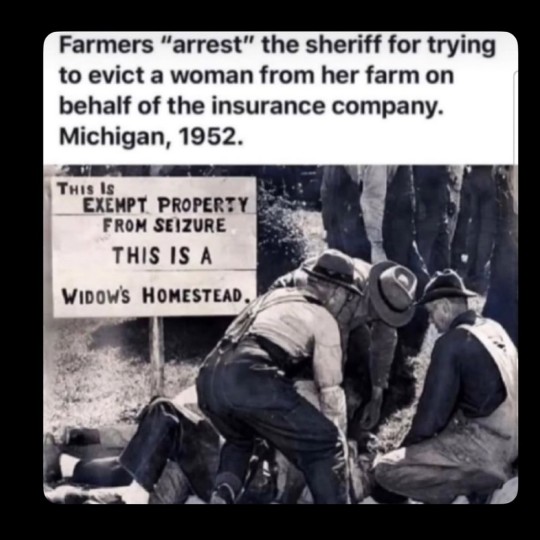
[Farmers "arrest" the sheriff for trying to evict a woman from her farm on behalf of the insurance company. Michigan, 1952.]
8 notes
·
View notes
Text
Reprioritize, Reprioritize, Reprioritize
From @ micahinATL (Twitter):
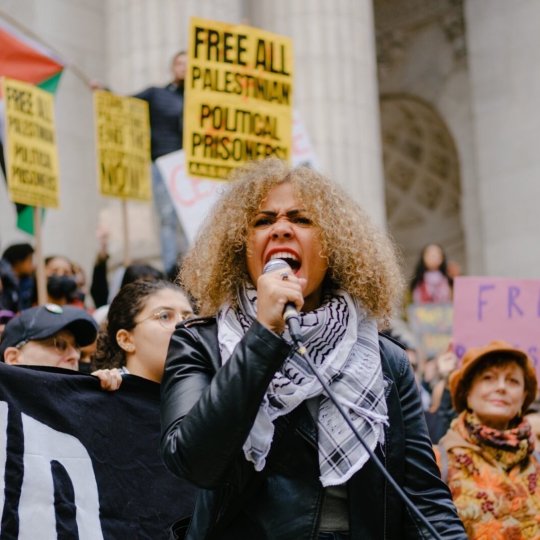
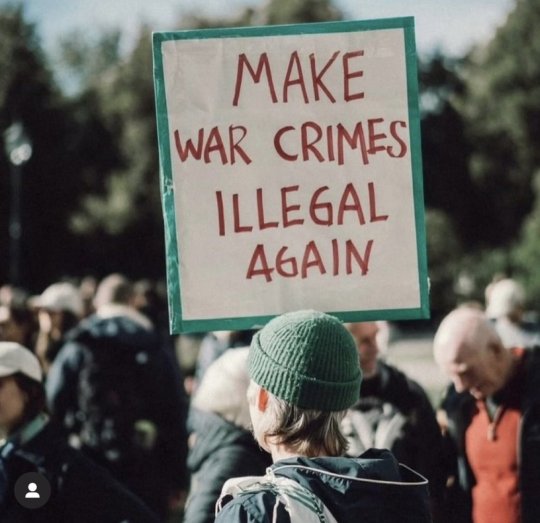
"if your political work begins & ends with presidential elections, now's the time to change that! join an org, find your lane, learn your local political landscape, figure out who's fighting, make a plan.
no matter who wins, there's going to be so much work to do."
"where is your local jail? who's caged inside of it? who's bailing people out? what's the police/sheriff budget of your city/town? where's the money for affordable housing? who's doing abortion access work? what are the mutual aid groups? who are your local electeds?"
"what climate action is your local or government taking or not taking? what's the status of public transit? who's doing disability justice work? what's the budget for the library? for parks? for schools? who's working to get cops out of schools?"
"who actually calls the shots in your city? what time is your city council meeting, and who shows up? who gets taxed and who gets tax credits? what are the major development projects happening, and how are they impacting the local community?"
"who's the district attorney? who's the sheriff? who's the police chief? what recent direct actions have happened in your city? who is mobilizing for palestine? for sudan? are there alternatives to policing in your city? is someone trying to build one?"
"who's doing restorative justice? who's coordinating pen pal programs with incarcerated people? supported incarcerated organizing? what are the local labor unions? do they need support? who's gearing up for the next local election that will get far less attention?"
"what immigrant detention centers are there near you? who's working to end collaboration between municipalities and ICE? what are the mental health resources in your county or city? are there city pools for kids during the summer? youth recreation opportunities?"
"what's your congregation up to? are the people in your book club taking action? do you know your neighbor? do your streets have pot holes? are there bike lanes? who's doing land defense work? stopping pipelines? stopping cop cities?"
"who's organizing tenants? doing eviction defense work? is there a local homeless union? when do cops do sweeps of homeless encampments?"
"the list goes on and on. we need people everywhere! we need people organized! everyone can plug in somewhere. it's hard, but you have to find something or start something, and do it with other people!"
16 notes
·
View notes
Photo
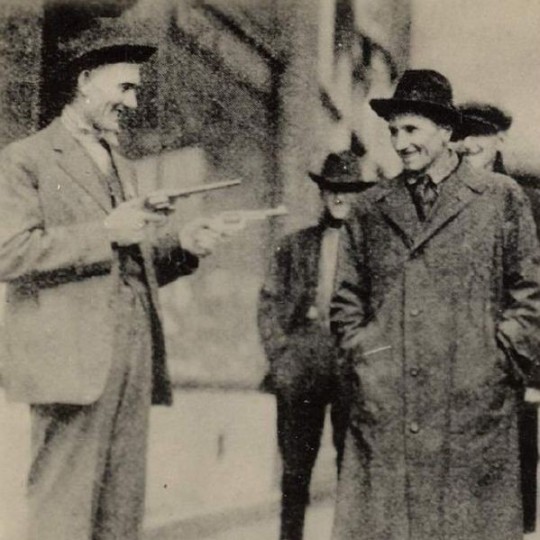
On this day, 19 May 1920, a shootout took place in the town of Matewan, West Virginia between striking miners and the Baldwin-Felts Detective Agency, who had arrived in town to evict miners’ families from their mountain encampment, in what would become known as the infamous Battle of Matewan. What made the situation in Matewan so unique was that the sheriff, Sid Hatfield (pictured, left), supported the miners rather than the coal companies. So the detectives brought along a fake warrant for the arrest of Hatfield, which he refused to respect, and shooting broke out. Seven Baldwin-Felts detectives were killed, including two of the Felts brothers themselves, as were two miners – Bob Mullins, and Tot Tinsley, an unarmed bystander – as well as the mayor Cabell Testermen. Hatfield and 22 other people, mostly miners, were subsequently arrested and put on trial for murder in what was at that time the lengthy murder trial in West Virginia history. But they were all eventually acquitted by a pro-union jury. Having been unable to secure a conviction, Baldwin-Felts agents would later murder Hatfield alongside his deputy, Ed Chambers, on the steps of a nearby courthouse. None of the killers were convicted of any crime. More info in our podcast episodes 57-58 about the WV mine wars: https://workingclasshistory.com/podcast/e57-west-virginia-mine-wars-1902-1922/ https://www.facebook.com/photo.php?fbid=628686199304599&set=a.602588028581083&type=3
148 notes
·
View notes
Text
New Florida Law Speeds Up Process for Property Owners to Remove Unauthorized Occupants
Occupant Removal If you’re a property owner in Florida, you may already know how complicated it can be to regain control of your property when someone is staying there without permission. A new Florida law, Florida Statute §82.036, is here to make that process faster and more straightforward. Effective as of July 1, 2024, this law aims to give property owners a quicker path to remove unauthorized…
#complaint to remove unauthorized occupants#eviction alternatives Florida#eviction attorney Florida#eviction lawyer west palm beach#eviction without lease Florida#Florida landlord legal rights#Florida law unauthorized occupancy#Florida property law changes#Florida property owner rights#Florida Real Estate Attorney#Florida real property law 2024#Florida Statute 82.036#Florida trespass law 2024#immediate removal unauthorized occupants#Law Office of Ryan S. Shipp#new Florida eviction statute#property owner remedies Florida#property possession Florida law#regain possession residential property#remove trespassers residential property#residential property rights Florida#Ryan S. Shipp eviction law#sheriff removal unauthorized occupants#tenant vs. trespasser Florida#trespass removal law Florida#trespasser eviction process#unauthorized occupants removal Florida#unlawful entry residential property#unlawful occupancy Florida#wrongful removal statute Florida
0 notes
Text
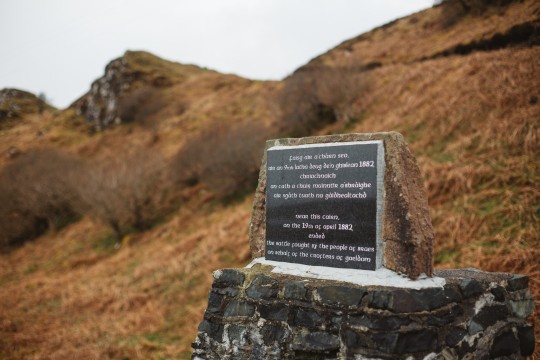
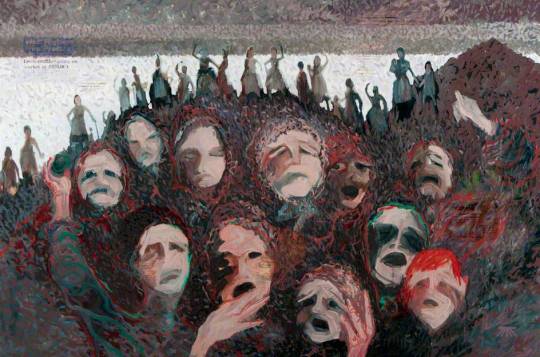
April 11th 1882 we saw an incident during the Highland Clearances happened on Skye that has become known as The Battle of the Braes.
Lord MacDonald sought help from the law to evict the stubborn crofters, and in April 1882 the locals woke to the sight of a sheriff officer. Charged with issuing eviction notices, the sheriff was met with an angry reaction and forced to burn the notices.
Following this initial confrontation, reinforcements were requested from Glasgow. 50 police officers travelled to Skye with the intention of evicting the crofters, who once again stood their ground.
Arriving at Braes, the police were faced down by a mob of around 100 men, woman and children from the local community, many of whom were armed with an array of primitive weapons. Wielding clubs, sticks and stones, the Battle of the Braes erupted and the crofters clashed with the police.
Several people were injured in the Battle of the Braes while others were arrested and subsequently fined for their involvement. Despite the outcome, the crofters still stood firm in their refusals and military intervention was considered.
The Battle of the Braes sparked similar unrest elsewhere in Skye, with locals in Glendale incensed at the treatment of other islanders.
Notably, the incident prompted a public outcry. Sympathetic press coverage of the dispute galvanised widespread support for the crofters. Sensing the mood, the government refused to authorise military intervention and a commission was launched to examine the plight of the crofters.
The Napier Commission, chaired by Lord Francis Napier, ultimately led to the introduction of new legislation aimed at improving security for crofters via the Crofters Act of 1886.
The Act was modelled largely on the Irish Land Acts of 1870 and 1881 and granted crofters security of tenure.
Today, the Battle of the Braes is a celebrated event in both the history of Skye and broader Scottish history. A monument commemorates the efforts of the crofters while a popular folk song also celebrates the event.
25 notes
·
View notes
Text
FFXIVWrite2024
Prompt 13: Butte
Implied offscreen child harm. This one was an experiment, not my best, but wanted to try out a new style. Dawntrail spoilers.
She Carried Fire

It was nearing noon as the two travelers rode into the tiny town by the railroad tracks. A tavern, a few ramshackle houses, and a low platform of hewn logs serving as a train station. The strangers left their chocobos near the outskirts of town, tying them loosely to the old dead tree near the well. As they stepped toward the tavern, one of the riders lifted a roughly-rolled cigarette to her lips, snapping a spark from her fingertips to set it alight.
Two shetona, by the look of it, one dark as coal, the other pale as snow. Both with ebony black hair that seemed to shed any sunlight that fell on it. As they reached the center of town, the female stopped, standing casually in the dust as her male companion continued to sidle into the tavern.
The woman seemed to be too comfortable for a stranger, though it was true that she had never been here before. With the banditry and violence that had run rampant in Tural since the dome appeared, she should have been terrified. No woman stood alone, outside, unless she had tired of living.
But there was an air about the woman. Some cold shadow that seemed to hang over her, something earned from turning your eyes to the dark corners of the earth, seeing the evil that lived there, and facing it with a smile, again, and again.
A crash rang out from the tavern, glass hitting polished wood. A few moments later, the male returned, slightly faster and with a bit less confidence. He was followed through the door by a massive lump of a man - a new Roe in town that called himself Mud.
Mud was as burly as he was stupid, and in the few short weeks he had been around, he’d already put two card cheats into the dirt. With no sheriff and no guns to turn to, the townsfolk had little choice but to tolerate him, and hope that the next group of bandits through town would recruit him and relieve them of his presence.
But it seemed like that was about to change.
The sun was high, now, burning and heavy in the sky. The air shimmered in the heat. Even the incessant whine of desert insects had fallen quiet. Too hot for crickets, it seemed. The male stranger paused at his companion’s side, whispering something to her, before moving past her toward the opposite end of the street.
Mud stopped in the middle of the road and stared at her. A handful of gawkers had been pulled outside in his great wake, and they now gathered on the porch of the tavern, half-hidden behind old dried out posts.
“There a reason you dust bunnies are interrupting my game?” Mud shouted, laughing to himself about the joke. What he lacked in wit, he made up for in memory, and he had been holding onto that insult for years. "Here to try to evict me?"
The stranger did not bristle. She finished a drag on her cigarette and let the warm butt fall to the dirt.
"This is bigger than that, now," the reply was barely above a whisper, but it carried through the town all the same. "You need to give me some information."
“Is that supposed to be a threat?” A tinge of anger already rose in Mud’s voice. He tossed his ratty poncho over one shoulder, revealing a rusted but menacing looking culverin dangling from his hip. “Who exactly do you think you are?”
The stranger threw open the sides of the dark linen duster that hung over her form, one hand now resting on the handle of a long revolver.
“Today, I'm just a bounty hunter that was supposed to be on vacation.”
The word ‘bounty’ was all the excuse Mud was looking for. With surprising dexterity, he lugged the massive gun up out of its holster, and into a two-handed grip, with the barrel fixated straight ahead.
Two blasts echoed through the town. The first, heavy and booming, as Mud’s weapon fired. The second was metallic and shrill, as his shot went far afield to put a massive dent in the side of the town’s water tower. The bounty hunter didn’t flinch. The bartender could have sworn she shined with a bright orange light, for just a moment, but would decide it was the glare of the sun as he retold the story over the coming years.
She raised her revolver with practiced precision, squeezing the trigger three times. Mud’s gun arm exploded, sending the weapon into the dirt under a pile of gore. The fourth round buried into his thigh, bringing him to his knees, and the fifth into his opposite shoulder, leaving his remaining arm dead and numb.
The stranger approached him, as Mud knelt panting in the dirt.
“Where’d you leave the girls, Mud?”
“What?” He whined, “What fucking girls?”
The stranger drove the barrel of her gun into Mud’s hefty ribs.
“The shetona girls your little posse rounded up last night.” Her thumb clicked back on the gun’s hammer. “I’m not asking twice.”
Mud gulped, blood running in rivulets from his lips.
“Warehouse,” he finally gasped out, “Other side of the tracks.”
“They hurt? You hurt them, Mud?”
“No! No, buyer pays more if they’re fresh.”
“Fresh?”
“He…”
Mud never got to finish that sentence, or any other. There wasn’t much left of him at all, in fact. When she was done, the stranger’s pistol glowed a dull red.
The two Viera riders had been in town for less than an hour, and left behind a story that outlived them both.
8 notes
·
View notes
Text
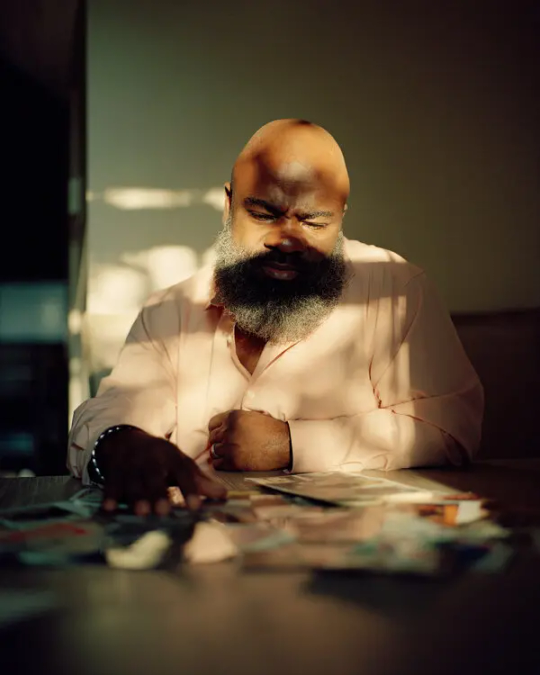
At age 17, Donnell Drinks was one of many young men in Philadelphia who went to prison for life without parole. Today, the city has resentenced more of those prisoners than any other jurisdiction.
Published Aug. 15, 2023Updated Aug. 18, 2023
Donnell Drinks woke up one morning to banging on his door in the projects of North Philadelphia. It was the late 1980s, and Mr. Drinks, who was 15 and the oldest of three boys, had nodded off after taking his youngest brother to school. He should have been at school himself, but he had stopped going earlier that year. It wasn’t a truant officer at his door, though — no one had ever come knocking about that. Instead, sheriff’s deputies were waiting outside. They were there to evict his family.
The officers told him to get out, not bothering to ask if there was an adult around, which there wasn’t. Mr. Drinks’s dad had abandoned the family a decade earlier, and his mom was in the throes of crack cocaine addiction. For years, Mr. Drinks had been raising his younger brothers, and he had just become a father himself. He’d dropped out of school to support his family by selling drugs, a transition that felt so natural he hardly remembered how it happened.
Groggy and panicked, Mr. Drinks scanned the apartment for essentials, stuffed a shopping cart with clothes for his brothers and wheeled the cart up the road to his grandmother’s overcrowded rowhouse. The officers never asked where he was going.
“There was not one adult that said, Hold a minute. We need to call somebody,” Mr. Drinks said. “Not one adult said, That’s a child.”
At the time, Black teenage boys like Mr. Drinks were being treated less as children in need of help and more as if they were threats to society itself. Crime was rising nationwide, particularly in Philadelphia, where, in 1990, the city recorded 500 murders in a year for the first time. It was a terrifying period, especially for people living in poorer neighborhoods where the violence was worst. But the rhetoric, perpetuated by public officials and overheated headlines, suggested that a new morally depraved generation of teenagers — particularly Black teenagers — were to blame. This idea gave rise to the “superpredator” era and a raft of laws cracking down on juveniles that followed.
Mr. Drinks, now 50 years old, is a small man with a stocky frame and a warm, gaptoothed smile. He keeps his salt-and-pepper beard meticulously fluffed. An animated storyteller who is quick with a metaphor and a motivational quote, he becomes guarded when describing his upbringing — not just because it’s painful, but because he doesn’t want anyone to think he’s trying to justify what happened next. “This is context,” he said, “not excuses.”
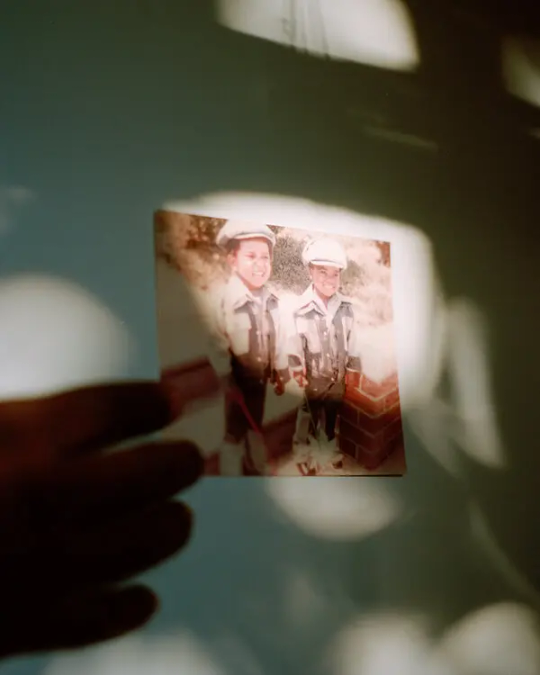
In February 1991, when he was 17, Mr. Drinks and his 22-year-old girlfriend, who was a police officer, tried to rob a man named Darryl Huntley. They staked out Mr. Huntley’s house and forced him and his fiancée inside at gunpoint. That violent act led to others. Mr. Drinks stabbed Mr. Huntley, fatally, and was shot himself. Mr. Drinks was arrested while he was in the hospital recovering from his injuries.
By the time Mr. Drinks was brought to trial for Mr. Huntley’s murder, Philadelphia had a new district attorney: Lynne Abraham, a former judge who went on to hold the office for nearly two decades. Pennsylvania law already made life sentences mandatory for first- and second-degree murder convictions, but Ms. Abraham responded to the era’s surge in violent crime by aggressively pursuing the death penalty, an approach that once earned her the moniker the “deadliest D.A.”
She also called for tougher punishments for juveniles. In 1994, she pushed for legislative changes to give prosecutors more power to charge juveniles as adults. “You don’t get any bonus for being under a certain age,” she told The Philadelphia Inquirer at the time. The next year, the state passed a law that required prosecutors to treat children 15 and older as adults when they were charged with certain crimes.
Though Philadelphia had already sentenced many young people to life without parole, under Ms. Abraham’s watch — and with the city’s murder rate remaining high throughout the ‘90s — the number getting that sentence in Philadelphia rose quickly. For some, it may have been a deal worth taking to avoid the death penalty.
Mr. Drinks was tried as an adult and initially sentenced to death. In 1993, his sentence was reduced to life without parole. (His then-girlfriend, who received the same sentence, remains in prison.)
He most likely would have died in prison, but while Mr. Drinks was behind bars, a national effort began to rethink the culpability of young people in the eyes of the law. In the 2005 case Roper v. Simmons, the Supreme Court struck down the death penalty for minors, leaning heavily on new scientific research that showed — “as any parent knows,” Justice Anthony Kennedy wrote — that young people are not like adults. They are more impulsive, reckless and susceptible to persuasion.
The court did not question that minors should pay for committing heinous crimes, but in banning the most severe punishment, it affirmed the possibility “that a minor’s character deficiencies will be reformed.” Real change, Justice Kennedy suggested, was possible.
Mr. Drinks had been in prison for more than a decade when the Roper decision came out. Then one day, a Philadelphia lawyer named Bradley Bridge traveled to the upstate Pennsylvania prison where Mr. Drinks was locked up, and explained to him and the other men who had been given life sentences as boys what the ruling could mean for them.
Striking down the death penalty for minors was only the beginning, Mr. Bridge said. Soon, he predicted, the court would apply the same logic to outlaw mandatory life sentences for juveniles too, potentially giving Mr. Drinks and others serving such sentences a shot at freedom — and giving the city of Philadelphia a chance to rewrite its legacy.
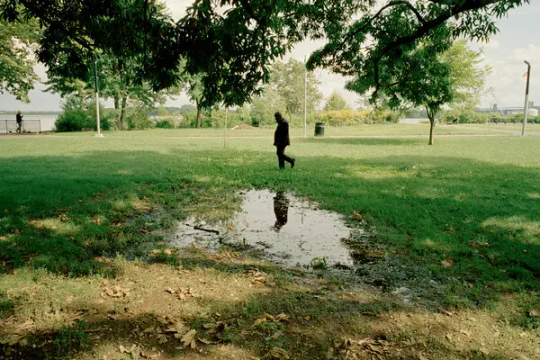
A long list of friends
Mr. Bridge had been delivering his speech inside prisons throughout Pennsylvania for months before Mr. Drinks heard him speak. Mr. Bridge worked for the Defender Association of Philadelphia and had spent nearly three decades representing prisoners who were appealing their sentences. When the Roper ruling came down, he was involved in the case of a teenager facing a mandatory sentence of life without parole. He understood immediately the opportunity that the Supreme Court’s ruling presented not just for his client, but for scores of prisoners.
For Mr. Bridge, it meant pursuing a novel legal theory that might help dismantle what he viewed as a particularly unjust part of the justice system. “Children are children, and they make mistakes,” Mr. Bridge said. “But they grow and change.”
Mr. Bridge began the enormous undertaking of compiling a list of all the prisoners in Pennsylvania who were sentenced to life as minors. No one in the state had ever kept track of this group, who came to be called “juvenile lifers” in the courts and “child lifers” by some of the inmates themselves.
He expected the list to be long. He didn’t expect it to eventually include more than 500 names, nearly one-fifth of the more than 2,800 child lifers in the country. More than 300 of them had come through Philadelphia’s system, making a city with less than 1 percent of the country’s population responsible for more than 10 percent of all children sentenced to life in prison without parole in the United States. No other city compared. Even more glaring: More than 80 percent of Philadelphia’s child lifers were Black. Nationally, that figure was roughly 60 percent.
Racism “undoubtedly occurred in every phase of the criminal justice system,” Mr. Bridge said. “This created an opportunity to try to fix things that had been broken.”

After the Supreme Court outlawed the death penalty for minors, Bradley Bridge started encouraging inmates sentenced to life as children to prepare for the possibility that the court would eventually revisit the constitutionality of their sentences, too.
His partner in this work was Marsha Levick, who had co-founded the Juvenile Law Center in 1975 as an idealistic young graduate of Temple University’s law school and gone on to become one of the nation’s foremost experts on juvenile sentencing.
Mr. Bridge and Ms. Levick began traveling the state, arranging meetings with the people on Mr. Bridge’s list and adding names as they went. Mr. Bridge’s first stop was Graterford, a maximum-security facility outside of Philadelphia that, at the time, held more child lifers than any prison in the state. Dozens of men crowded into Graterford’s chapel to hear what Mr. Bridge had to say.
“People wanted to know what was coming down the pike,” remembered Kempis “Ghani” Songster, who was in the room that day. “Is this a ray of light flickering on?”
At age 15, Mr. Songster stabbed another teenager to death in a crack house. Both were runaways working for the same gang. He was given a life sentence for his crime, but it wasn’t until that meeting in 2006, nearly two decades after he went to prison as a scrawny kid who couldn’t grow a beard, that he realized how many other lifers at Graterford had also arrived as teenagers.
“It was like, Whoa, he’s been here since he was a kid, too?” Mr. Songster said. “A lot of us who were child lifers didn’t really know that we were in a distinct class.”
There had never been a reason to talk about age. The courts had treated them as adults, and if anything, being marked as a child in a violent adult prison would only have made them more vulnerable. Now, there was power in the identity.
The child lifers inside Graterford began organizing. They quickly formed a committee called Juvenile Lifers for Justice, which met weekly to discuss the evolving law and science around adolescent development. They drafted pamphlets, circulated newsletters to other prisons and their family members, and kept one another motivated around their common cause.
These conversations also started to change how some of the men thought about why they had committed such serious crimes.
Mr. Songster said he never felt “entitled” to be free. “I can’t wash the blood off my hands that’s on my hands,” he said. But the emerging research, which showed brains aren’t fully developed until people get into their 20s, gave him new understanding. “It made me curious about myself,” Mr. Songster said of the research. “I knew I was a good person, but I couldn’t reconcile the person that I became and I know I am with the person that committed that horrible act.”
The child lifers were also reaching out beyond the prison walls. They invited politicians to visit Graterford and partnered with nonprofit organizations to distribute supplies to local schools.
“We were always trying to break that wall down so people could see we’re humans,” said Don Jones, who was also sentenced as a minor and was the president of Graterford’s N.A.A.C.P. chapter during this period.
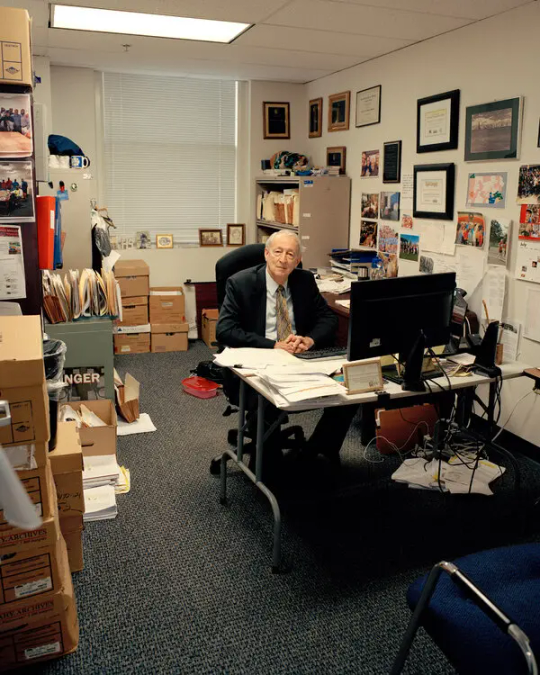
Mr. Bridge and Ms. Levick became frequent fixtures at the prison. At each of these visits, Ms. Levick was struck by how the men — imprisoned at such a young age and last in line for any prison edification programs because of their status as lifers — had mastered the nuances of the law and were orchestrating a statewide grass-roots movement from inside prison. “Their desire to come home was real,” Ms. Levick said. “It was palpable, and it made you want to do more.”
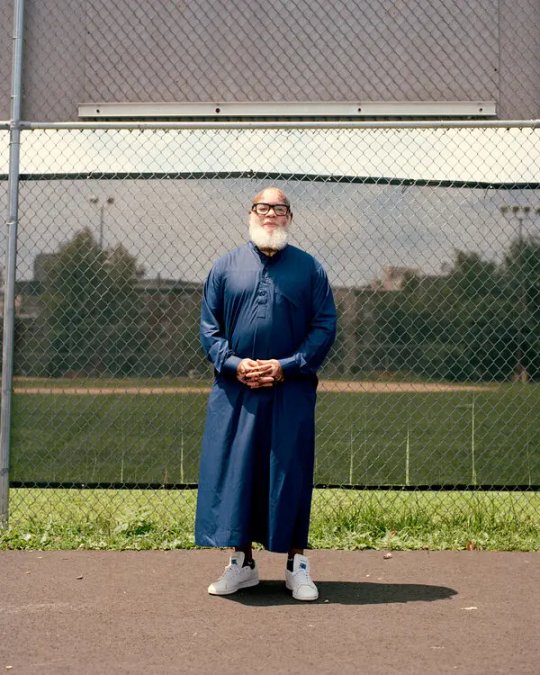
“We were always trying to break that wall down so people could see we’re humans,” said Don Jones, who was locked up at Graterford and has since been released.
Mr. Drinks had spent 10 years at Graterford, but after he was transferred upstate, newsletters coming out of Graterford and messages passed along from old friends became his lifeline. Without a lawyer of his own, he kept his case alive by adapting draft legal petitions circulated by Mr. Bridge. And he documented his accomplishments in prison — articles he’d written, certificates he’d earned, thank-you notes from the nonprofits he’d raised money for — until he had three manila envelopes’ worth of records illustrating all the ways he’d grown.
Still, he never quite let himself believe that Mr. Bridge’s prediction would pan out. He wanted to be prepared, but he was also prepared to be let down.
“It’s like throwing water out of a boat that’s sinking,” Mr. Drinks said. “You’ve got to do it anyway, because if you don’t, the water’s going to get you.”
Throughout this period, lawyers around the country, including Ms. Levick and Mr. Bridge, were bringing new cases, trying to apply the rationale in the Roper ruling to other kinds of sentences for juveniles. At the national level, a key leader in this work was Bryan Stevenson, founder and executive director of the Equal Justice Initiative, a nonprofit.
Mr. Stevenson saw a connection between the superpredator era and the overwhelming number of young Black boys who had been locked away for life.
“You had these criminologists going around saying that some children aren’t children. Some kids look like kids, but they’re really, quote, superpredators,” he said. “That narrative was so prevalent, so persuasive, that you see states all over the country lowering the minimum age for trying children as adults.”
In 2008, the Equal Justice Initiative found 73 children who had been given sentences of life without parole when they were 13 and 14 years old. And all of the people who received those sentences for crimes other than homicide were children of color.
“It just said something about the way in which race was a proxy for a presumption of dangerousness, this presumption of irredeemability,” Mr. Stevenson said.
Then came a series of breakthroughs. In 2010, the Supreme Court abolished sentences of life without parole for minors charged with crimes other than murder. Two years after that, Mr. Stevenson appeared before the court on behalf of two young men who were sentenced to life without parole when they were 14. In its decision in Miller v. Alabama, the Supreme Court struck down all mandatory sentences of life without parole for juveniles. Four years later, in a case called Montgomery v. Louisiana, for which Ms. Levick served as co-counsel, the court made that decision retroactive, fulfilling the prediction Mr. Bridge made in the Graterford chapel a decade before, and giving more than 2,800 child lifers across the country the right to have their sentences revisited.
Mr. Drinks remembers the first time he got a look at Mr. Bridge’s list. It was filled with the names of people he’d known for years, but had never known were child lifers. There was Abd’Allah Lateef, the soft-spoken guy he’d always admired at Graterford, even when he griped about Mr. Drinks’s loud music. There was Luis “Suave” Gonzalez, a big talker whom Mr. Drinks had encouraged to lead one of Graterford’s Latin American cultural exchange groups. And there was Don Jones, a friend so close, Mr. Drinks said, “my brothers call him brother.”
“That was my tear-shed moment,” Mr. Drinks said. “I knew I was on the list, but going down the list and seeing genuine friends?” Now, they might all have a shot at freedom — a shot, but not a guarantee.
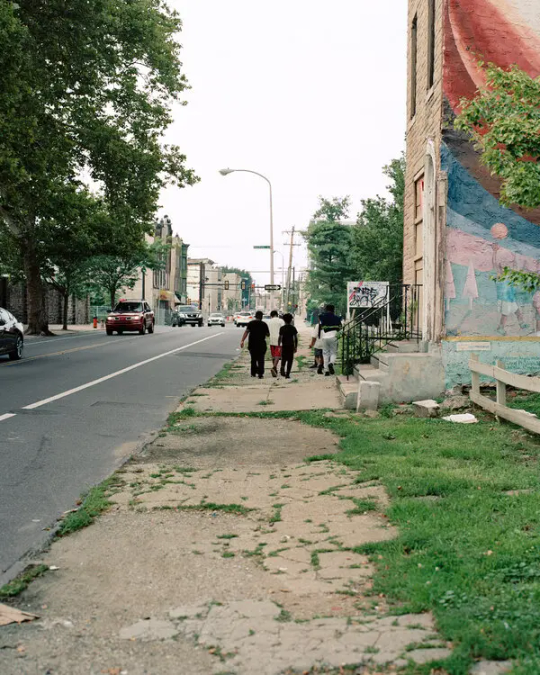
A block in North Philadelphia. Donnell Drinks sold drugs in the area as a teenager and was convicted of homicide at age 17 in a robbery gone wrong.
‘The election changed everything’
The Supreme Court’s rulings in Millerand Montgomery marked an important rethinking of culpability when it comes to children who commit the most serious crimes. But the practical implications of the rulings were limited: the court hadn’t abolished all life without parole sentences for children — only ones where state laws made the sentences mandatory.And while child lifers now had a chance to make a case for their release, prosecutors could still seek new life sentences. In other states with high numbers of child lifers, including Michigan and Louisiana, as well as some parts of Pennsylvania, that’s just what they did.
In Philadelphia, however, all of the list-gathering and planning that had been taking place for more than a decade began to pay off. Most of the state’s child lifers had been prosecuted in the city, and it was up to its district attorney’s office and court system to move hundreds of people through the resentencing process. “Philadelphia was bad, and everybody recognized it was bad,” Mr. Bridge said.
Ms. Levick added, “In a way, the whole world was watching.”
Philadelphia soon began resentencing and releasing child lifers, starting with those who’d been in prison the longest. But while R. Seth Williams, Philadelphia’s district attorney, initially committed not to resentence anyone to life without parole, he stuck to strict new state sentencing guidelines, which meant that Mr. Drinks and others who had been swept up in the ’90s, would most likely spend many more years in prison.
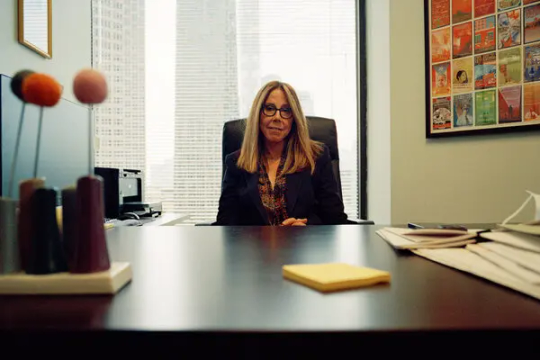
Marsha Levick, an expert on juvenile sentencing, visited inmates. “Their desire to come home was real,” Ms. Levick said. “It was palpable, and it made you want to do more.”
Mr. Williams viewed this approach as the only way to honor the Supreme Court’s ruling, the Pennsylvania government’s consensus and the rights of the victims. “People often only look at the factors for the defendant. I understand. But they often forget there was a victim,” Mr. Williams said. “Someone was murdered. We just can’t just sweep that under the rug.”
Then came a twist that no one predicted. In March 2017, a little over a year after the Montgomery decision, Mr. Williams was indicted on charges including bribery and extortion and later sentenced to five years in prison. Almost as surprising was who was elected to be his successor: a sharp-elbowed former public defender and criminal defense attorney named Larry Krasner.
Whatever Ms. Abraham, the former district attorney, had been to the city in the 1990s, Mr. Krasner swore to be the opposite. (Ms. Abraham did not respond to requests for comment.) He had run against the death penalty and mass incarceration, and vowed to decriminalize marijuana and end cash bail. One of his first moves after taking office in January 2018 was to fire 31 prosecutors in a purge that became known as the Snow Day Massacre.
When it came to juvenile lifers, Mr. Krasner was more open than his predecessor to considering how people had changed in the decades since committing their crimes. Chesley Lightsey is a former assistant district attorney who worked on Mr. Drinks’s case and others under both administrations. “It took time for me to wrap my head around it: ‘Okay, now we can have much more of a conversation about this,’” she said about the change when Krasner was elected. “It was just a different perspective.”
Under Mr. Krasner, prosecutors paid special attention to reports drafted by mitigation specialists. Those specialists, who are essentially professional storytellers for defendants, interviewed juvenile lifers, their families and anyone else who could offer context. They asked questions about how the inmates had been raised, the trauma and pain that had influenced their actions, what they had done with their time in prison and what they planned to do upon release.
By the time Mr. Krasner took office in January 2018, Mr. Drinks had spent hours spilling his soul to a lawyer and mitigator named Rachel Miller. Over the course of countless calls and several in-person visits, Ms. Miller wove the story of Mr. Drinks’s life into a memo, complete with a two-inch stack of documents highlighting his accomplishments.
The memo covers the most painful moments of Mr. Drinks’s childhood: being abandoned by his father, his mother’s struggle with addiction, getting evicted. It describes how Mr. Drinks would skip school to collect the family’s food stamps before his mother could pawn them for drugs and how, when his mother turned violent, he would take the brunt of her beatings in an attempt to spare his brothers.
But the memo also tells the story of a grown man who spent his time behind bars trying to atone for the crime that put him there. Among the stack of documents is a community college transcript filled with A’s and B’s, an agenda for a workshop he organized with victims’ rights advocates and a photo of him beaming behind a giant check made out to Big Brothers Big Sisters of America. Perhaps most meaningful to Mr. Drinks were the letters he received from other incarcerated men who were members of a youth group he founded attesting to all the ways the group, and Mr. Drinks, had saved them. “I did not know the child that committed the crime he is in here for,” read one of the letters, “but the man I do know is not that same person.”
Before Mr. Krasner’s election, Mr. Drinks was offered a deal of 35 years to life, which would have made him eligible for parole in 2026. Shortly after Mr. Krasner took over in 2018, Mr. Drinks got a new offer: time served.
“The election changed everything,” Mr. Drinks said, referring to Mr. Krasner’s victory.
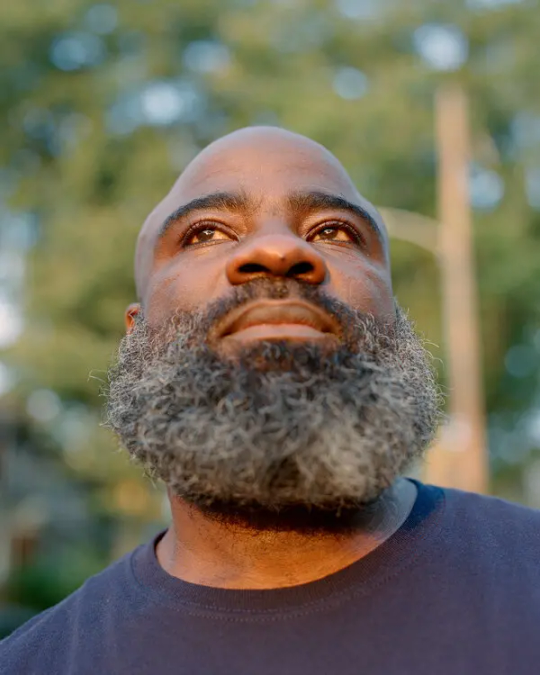
“I’m always conscious of the emotion, the hurt, the disappointment, the disdain, all those negative emotions that my actions led to,” Mr. Drinks said of the murder he committed. “I’ve got to live the rest of my life counteracting that.”
Mr. Drinks’s case was not unique. Researchers at Montclair State University have found that, under Mr. Krasner, prosecutors began offering child lifers new sentences that were, on average, 11 years shorter than the ones offered to those same people under Mr. Williams. Crucially, the researchers found that child lifers’ release had a negligible effect on public safety. Seven years after they started coming home, the rearrest rate for Philadelphia’s child lifers hovers around 5 percent. That’s small compared with the national rate, where 40 percent of people with past murder convictions are rearrested within the first five years, according to the most recent data from the Bureau of Justice Statistics. As of early this year, only three of the city’s child lifers who were rearrested have been convicted (for marijuana possession, contempt and robbery in the third degree), according to the Montclair State researchers.
For Mr. Krasner, these numbers reveal as a lie the idea that some people are so incapable of change that they should never be offered a shot at it. “It was always wrong to believe that people are either saints or they’re sinners,” Mr. Krasner said.
At his resentencing hearing in April 2018, Mr. Drinks read aloud from a letter before a gallery filled with friends and family, as well as the loved ones of Mr. Huntley, his victim. He apologized to Mr. Huntley’s family and said he knew he had no right to ask anyone in the room for forgiveness, and so he didn’t. But he did promise to spend the rest of his life making amends.
Mr. Huntley’s family members also made statements to the court. In a handwritten letter, Mr. Huntley’s sister described her brother as a loving and giving person. She explained how his murder had crushed her family, derailed her own education and deprived her children of ever knowing their uncle. “My mother still is deeply hurt and our family find it difficult to celebrate Valentine’s Day,” she wrote, “because these horrible, horrible actions took place that evening leading into his death.” She told the court that she did not want to see Mr. Drinks released.
Mr. Huntley’s sister did not respond to an interview request, but Suzanne Estrella, who runs the Office of Victim Advocate in Pennsylvania, said that many victims’ families “flat-out just do not” agree with the resentencings. But she said there were also many families that understood and accepted them. “You have survivors who have lost loved ones and survivors who have loved ones who are incarcerated,” Ms. Estrella said. “So you see all those perspectives coming to the table at the same time.”
As painful as it was, Mr. Drinks said he appreciated Mr. Huntley’s family’s honesty. “I felt it, and I understood it,” he said. “I’m always conscious of the emotion, the hurt, the disappointment, the disdain, all those negative emotions that my actions led to. I’ve got to live the rest of my life counteracting that.”
Three months after the hearing, having won the approval of the parole board, Mr. Drinks met his brothers as he walked out of prison for the first time in nearly three decades. Mr. Drinks remembers his sense of disbelief and being a little carsick as they drove the four hours back to Philadelphia, where he would move in with his brother Damon. The whole way home, he couldn’t shake the feeling that someone was following close behind. “I didn’t want to look back,” he said, “so I kept looking ahead.”
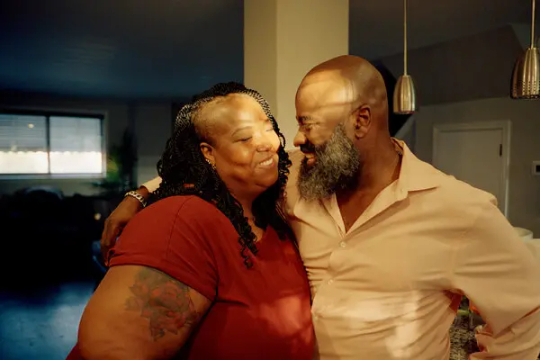
Donnell Drinks married Shekia Drinks two years ago. But he hasn’t been able to get the approval needed to move out of his brother’s home and in with his wife.
A return to the 1990s?
Of the more than 300 child lifers who became eligible for resentencing in Philadelphia in 2016, all but about a dozen have been resentenced, and more than 220 have been released, the majority of them on lifetime parole. That’s nearly a quarter of the roughly 1,000 total child lifers who have been released across the country. These numbers make Philadelphia, once an outlier in imprisoning minors for life, now an outlier in letting them go. By 2020, the city had resentenced more child lifers than Michigan and Louisiana combined.
What set the city apart, said Mr. Stevenson, of the Equal Justice Initiative, was not just the buy-in from local officials and public defenders, but also the community of child lifers who became their own best argument for release.
“It was the way they organized, the way they cared for one another, the way they modeled a kind of readiness to contribute to society,” Mr. Stevenson said. “These young people had been told they were going to die in prison. Some of them just never accepted that.”
Since the Supreme Court decisions, more than half of all states have outlawed life without parole sentences for children altogether, reducing the number of child lifers left in the country to fewer than 600, according to the Campaign for the Fair Sentencing of Youth, a national nonprofit. Mr. Stevenson’s organization is now working to raise the minimum age at which children can be tried as adults in 11 states, including Pennsylvania, where there is no age floor. Other states are considering abolishing mandatory life without parole sentences for people under 21.
While life without the possibility of parole sentences for juveniles are now rare, they are not unheard of. The now solidly conservative Supreme Court has issued a ruling that could lower the bar for judges to apply the sentence to children in states where it is still allowed. A prosecutor in Oakland County, Mich., is seeking life without parole for a mass shooter who was 15 when he killed four students at his high school in 2021. A judge will have to weigh the horror of his crime against the possibility that, over time, he could change.
The United States is still the only country in the world that gives courts the discretion to send children to prison without the chance of proving themselves later in life at a parole hearing. And the tough-on-crime rhetoric of the 1990s is making a comeback, thanks to a spike in violent crime that began at the outset of the pandemic. In Philadelphia alone, the murder rate has surpassed the record set in 1990 two years in a row, with young people emerging as both victims and perpetrators.
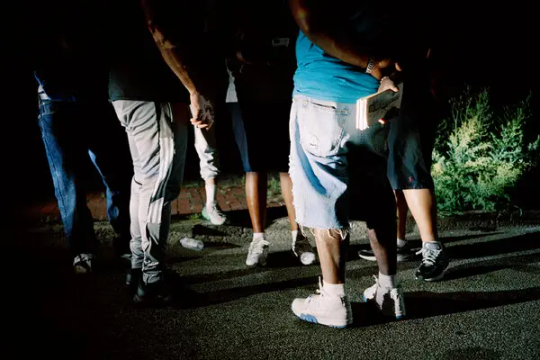
Mr. Drinks and Mr. Jones started an anti-violence group in Philadelphia and sometimes walk the streets handing out pamphlets.
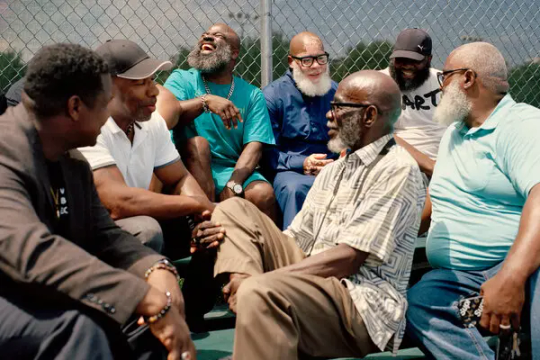
Just as they did in prison, child lifers have come together to create a buffer against an outside world that often feels hostile and unwelcoming.
Though this uptick in crime is showing signs of decline, it has prompted a nationwide backlash against progressive prosecutors, including Mr. Krasner, whose comparatively lenient approach has become a lightning rod in local politics. Mr. Krasner was recently the subject of an impeachment effort by Pennsylvania Republicans, and even some Democrats raced to condemn his record during the city’s mayoral primary in May.
Those who were released have become some of the loudest voices for building upon the fragile gains they fought for while on the inside. Their fight now is about abolishing life without parole for everyone, getting young people out of adult prisons and addressing the underlying causes of the violence plaguing Philadelphia and other major cities.
“If you would have dealt with a lot of my issues,” Mr. Drinks said, “they probably would not have escalated to crime.”
It’s not that Mr. Drinks and his fellow activists believe juveniles convicted of murder should not be held accountable. “When we talk to legislators, we don’t say: Throw the doors open, and everybody’s coming home,” Mr. Drinks said. “Our conversation is always that everybody deserves an opportunity to show they’re worthy of coming home.”
Today, Mr. Drinks coordinates a network of former child lifers through the Campaign for the Fair Sentencing of Youth. In any given week, he might be found with two cellphones in hand, flying to Alabama to urge progressive prosecutors to stay the course, organizing retreats for formerly incarcerated men and women, or canvassing city streets through an anti-violence nonprofit he co-founded with Mr. Jones, his friend from Graterford.
Mr. Drinks and other child lifers know that they embody for the public what all the research said about a young person’s capacity for change, and they are keenly aware that their example could help secure other people’s freedom. But they are also wary of being used to suggest that the system works, or allowing it to conceal just how difficult their re-entry into the outside world has been.
While several of Philadelphia’s child lifers have gone on to become an Ivy League lecturer or nonprofit executive, many more are working minimum-wage jobs or are unable to find work. Some are in bad health. Four have died. Nearly all of them are on lifetime parole, with the possibility of being sent back to prison forever looming.
Mr. Drinks credits his brothers, Damon and Kareem, for making his homecoming easier. Throughout Mr. Drinks’s incarceration, the three brothers had remained as close as the prison system would allow, keeping up visits even when he was transferred far away. Often, Damon Drinks would bring along Mr. Drinks’s son, who was just 3 when his father was arrested, and is now a grown man with a family of his own. It is thanks to his brothers, Mr. Drinks says, that he was able to maintain a relationship with his son at all.
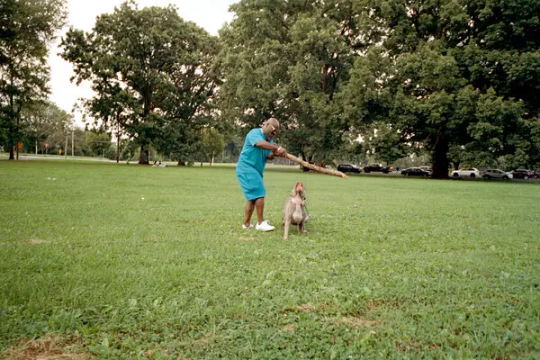
Mr. Drinks, in Fairmount Park, said his brothers visited him while he was in prison and have helped him readjust to life on the outside.
Damon and Kareem Drinks’s support continued once their big brother was released. They took him shopping, kept him housed and partnered with him to start a local printing company not far from the city courthouse. Mr. Drinks has not had to struggle to survive, but that doesn’t mean he has not struggled. Five years after he left prison, the terms of his parole still prohibit him from leaving the county of Philadelphia without permission. He got married two years ago, but he has yet to get the approval needed to move out of his brother’s home and in with his wife. And he lives with the constant fear that one act of violence by any of the state’s other child lifers could spell the end of his own tenuous freedom.
This fear is part of what keeps Mr. Drinks connected to the men who were once boys with him on the inside. Just as they did in prison, child lifers have come together to create a buffer against an outside world that often feels hostile and unwelcoming. These bonds are as much a product of their shared experiences as they are a defense against their shared vulnerabilities.
“We’re each other’s co-defendants,” Mr. Drinks said. “We see people want to stray, it’s like, No, come on. We’re going to get to this finish line together.”
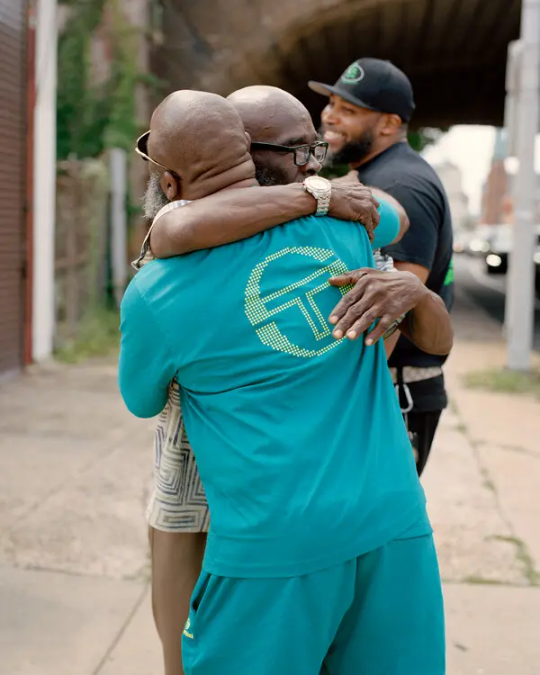
Mr. Drinks hugs Michael “Smokey” Wilson, another former child lifer.
#How People Sentenced to Life in Prison Made Their Case for Release#prison#american injustice system.#penal injustice#sentencing disparities#adultification#Black Lives Matter
65 notes
·
View notes
Text
On July 1, 1965, a white sheriff in Camden, Alabama, forced people to leave and then padlocked the doors of the Antioch Baptist Church—a Black church where leaders were discussing civil rights—even though he did not have the authority to do so. Community members from the Summer Community Organization and Political Education (SCOPE) group had been meeting at the church for several months, working to promote Black voter registration in Alabama and the rest of the South. According to the 1960 census, Black residents made up over 75% of the population of Wilcox County. However, because of established practices and laws passed with the intent of suppressing the Black vote—which were enforced in discriminatory ways—no Black people in Wilcox County were registered to vote during the 1964 election. When people at the Antioch Baptist Church began registering Black voters, they were quickly targeted by the white community. Two days before Sheriff P.C. Jenkins evicted people from the church, a group of white men had broken into the building and beaten two Black teenagers, inflicting injuries so severe that they were both hospitalized. Rather than providing protection from this violence, on July 1, Sheriff Jenkins announced that the church had been the cause of “too much disturbance,” and gave people only a few hours to clear out their belongings before putting a padlock on the door. Though Sheriff Jenkins claimed that at least one church leader had expressed opposition to having the church involved in civil rights activism, the following day the chairman of the Board of Deacons denied that claim, and two weeks later the congregation and board of the church unanimously voted to support the church’s involvement in registering Black voters. Read EJI’s report, Segregation in America, to learn more about how local white officials targeted civil rights activists and the Black church in their quest to uphold segregation.

#history#white history#us history#am yisrael chai#jumblr#republicans#black history#Camden#Alabama#July 1#July 1 1965#Antioch Baptist Church#Civil Rights#Summer Community Organization and Political Education#SCOPE#Wilcox County#vote#voter#voter suppression#terrorist#russia is a terrorist state#israel is a terrorist state#Sheriff Jenkins#defund the police#bad police#police officer#police brutality#dirty cop#dirty cops#bad cops
10 notes
·
View notes
Text
Okay, now it's time to help out when writing SPN fics involving a certain Sheriff Jody Mills. I had actually been meaning to post this one for months but never actually got around to it until today. So, here's a bunch of stuff that you can use when writing fics for or involving Jody, particularly the folks who don't know how sheriff's offices work.
**NOTE - my hometown has a sheriff's office, so I'll be referring to that quite a bit; when I was growing up, my county sheriff was related to my stepdad (no clue who it is now, nor do I care tbh)**
There is a sheriff's office in Sioux Falls for Minnehaha County. So, this is what Jody Mills would actually be sheriff of. Also, she would have jurisdiction over the county Sioux Falls is located but could take action anywhere in the state of SD. This also adds a silly little bit of credence to the sheriffs retreat in s10 e8 "Hibbing 911".
It could have been called the Sioux Falls Sheriff's Office since that's where it's located. We do the same thing in SoMD with the St. Mary's County Sheriff's Office, often calling it the Leonardtown Sheriff's Office (because it's located in Leonardtown).
Typically, the Sheriff is an elected position, elected every 4yrs (in 43 states; 7 states have different election/appointment terms). Ideally, they would have served as a police officer or deputy prior to becoming sheriff but it's not a requirement and, depending on where, probably wasn't the case. The shit in s5 e15 when the dead rose in Sioux Falls probably locked Jody in for re-election for the entirety of her career lol
The sheriff's office serves legal paperwork (i.e. - evictions, subpoenas) and run the courts and the jails. If there isn't a police dept, they do investigative work, but this is more common in smaller counties. That said, they do still arrest people, regardless of whether there is a local police dept. Sioux Falls does in fact have a police dept so, Jody would have been very familiar with both Digger's and Bobby's stints in the county jail and easily could have arrested them herself over the years. Also, since she literally caught them in the act, Jody had jurisdiction to arrest Sam and Dean for impersonating police and attempted murder (albeit of a "tax payer" zombie, iykyk). In my home county, there are no police depts aside from the base police, so the sheriff's office and state troopers do everything (but mostly the county sheriff).
6 notes
·
View notes
Text
My dad told me about his friend (who’s daughter I went to high school with) who basically completely abandoned his kids after his wife died like his daughter and older son had to fight for custody of their younger autistic brother bc he literally just fucking left and then he told them they could stay in the house and just pay utilities and he would take care of the mortgage but apparently he stopped paying and told fucking no one and the sheriff showed up to deliver a 30 day eviction notice and that’s how they found out….. wtf is wrong with that man ffr he also got married and told no one lmao
3 notes
·
View notes